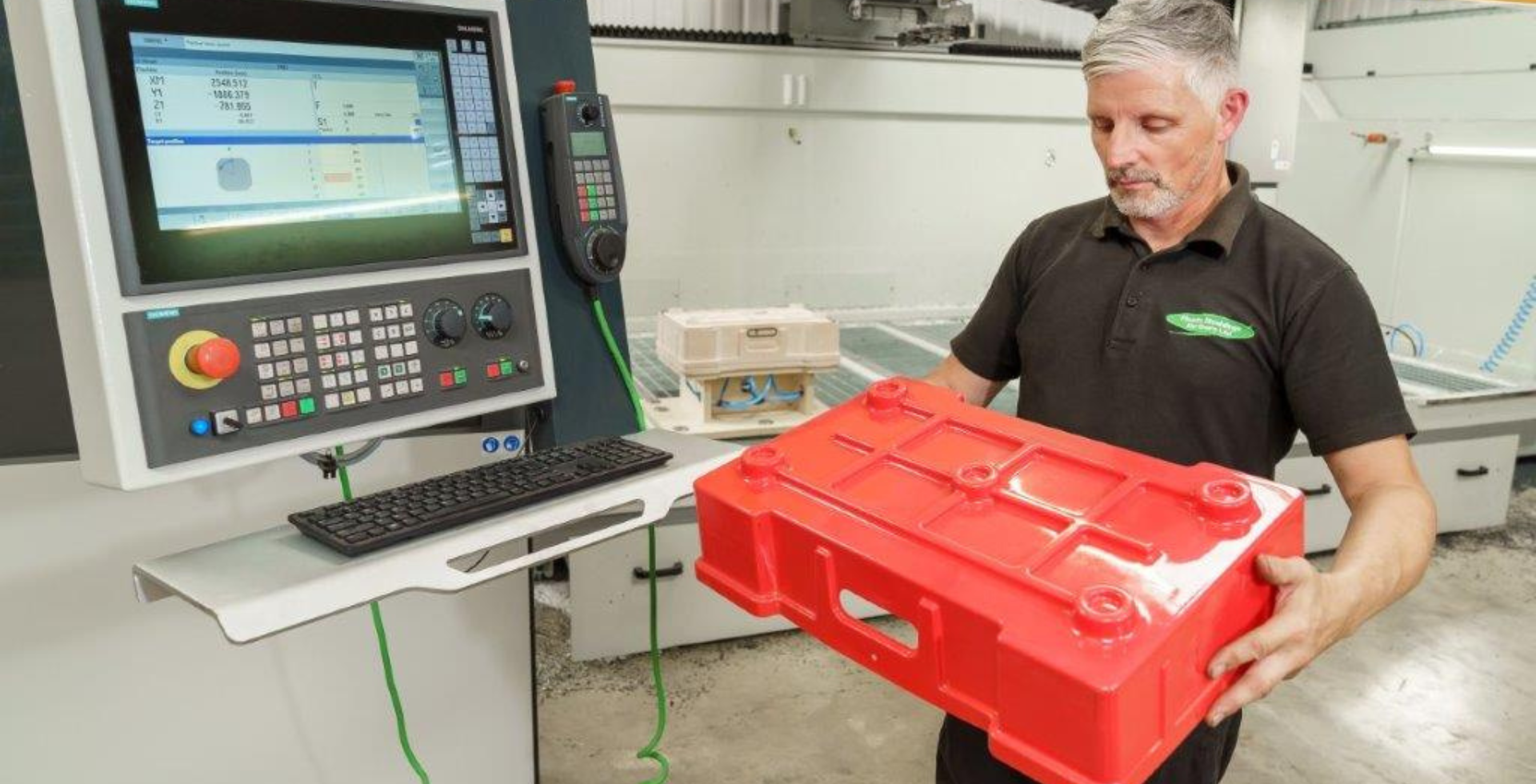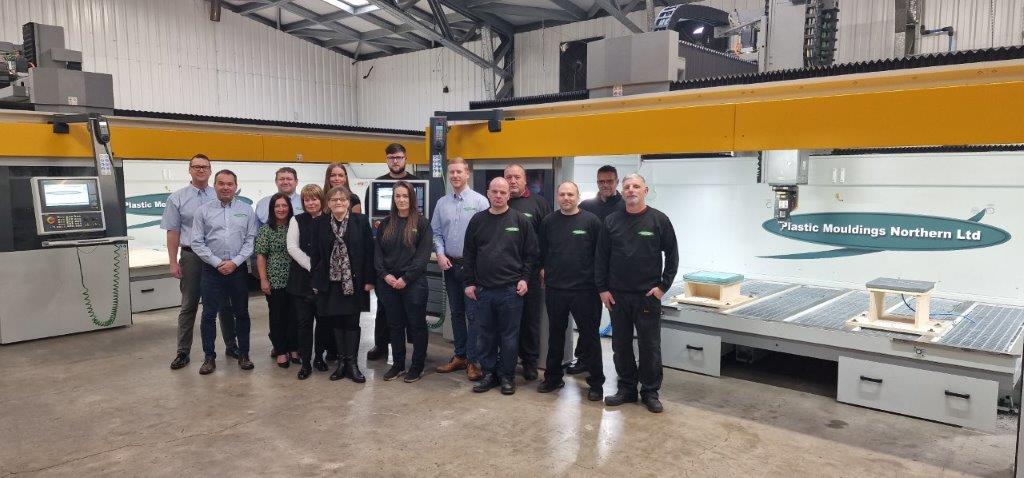“Low volume, high tolerance work is the bedrock of our business”, says Mark Rigg, Managing Director of Plastic Mouldings Northern (PMN), a specialist manufacturer of plastic vacuum formed products since 2002. “While many vacuum formers specialise in high-volume projects, we pride ourselves on our versatility, excelling at both high and low-volume production. Some clients trust us with orders as small as five units of a specific part, and on various projects, we meticulously trim parts to achieve tolerance accuracy within +/-0.2mm.”
Excelling in this niche has enabled the Co. Durham based vacuum former to establish an enviable customer base that spans the automotive, aerospace, agricultural and scientific sectors, and includes high profile names such as The London Underground, McLaren, Bentley, Rolls Royce, Jaguar, JCB, Hitachi, Bosch and BA Systems. PMN’s investment in two Materia CL CNC machining centres has been vital in attracting these prestigious customers and delivering on their quality and tolerance demands.
“This was the reason for purchasing our first Materia CL in 2021,” recalls Mark. “One of our automotive customers asked us to produce some parts for them and we were struggling to hit the tolerances - we could only reach +/-0.7-0.8mm. As soon as we moved production onto the Materia, we were able to reduce that by more than half.”
One such part that requires very high tolerance accuracy is a car battery pack cover.
“Covers have to be trimmed to the correct height for good reason; if they are left with an overhang, the plastic may touch the part and cause interference, and if they are trimmed too short, this will create a gap which means the battery is unprotected and could spark and catch fire,” explains Mark.
Continuous rotation: a unique spin on machining
Two design features on the Materia CL have enabled PMN to master these tricky jobs. The first of these is continuous c-axis rotation on the electrospindle.
Conventional belt-driven spindles can only rotate within 720 degrees (just under two full revolutions) before their movement is hindered and the spindle has to retract, rewind and restart. This impacts efficiency and, as the belt wears, finishing quality diminishes.
By contrast, Biesse utilises a five-axis electrospindle that can rotate freely without having to stop and reset itself thanks to the innovative design of the patented infinite c-axis. This clever electrospindle will work all around the workpiece without having to rewind itself. The use of a direct-drive motor rather than a belt also means there is no decline in performance over time from wear and tear.
There are two main benefits to utilising a spindle with endless rotation: cycle time is reduced considerably because there is no ‘dead’ time while the spindle is stopping, unwinding and resetting, and, most importantly to PMN, this continuous rotation eliminates mismatch lines on the trimmed part.
“We are definitely seeing the benefits of continuous rotation. Not only does it save time, it also gives us a better finish,” says Mark.
An example of where continuous rotation comes into its own at PMN is when trimming ABS seat backs.
“With our old machine we would get halfway around the part and then have to lift out the head and respin it, which sometimes resulted in nicks and steps or mismatched trim lines. With infinite c-axis rotation, we can go all the way round the part in one continuous action, producing a smooth, even trim line,” says Mark.


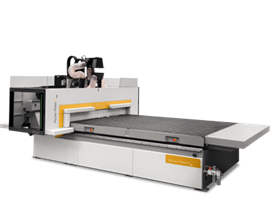
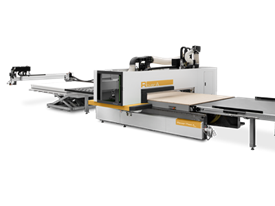
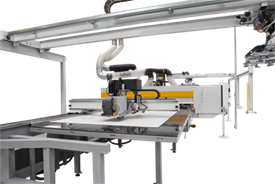
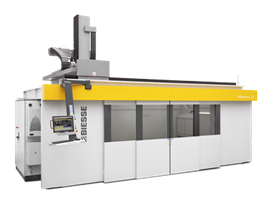
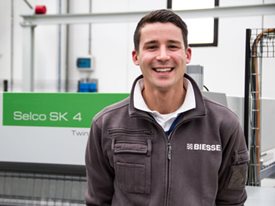
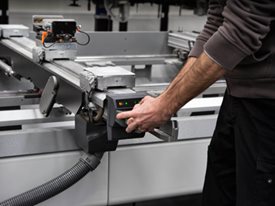

 Worldwide
Worldwide
 Italia
Italia
 United Kingdom
United Kingdom
 Россия
Россия
 France
France
 中国
中国
 Asia
Asia
 Deutschland
Deutschland
 España
España
 Schweiz
Schweiz
 North America
North America
 India
India
 Australia & New Zealand
Australia & New Zealand
 Türkiye Cumhuriyeti
Türkiye Cumhuriyeti
 Middle East
Middle East
 Brasil
Brasil
